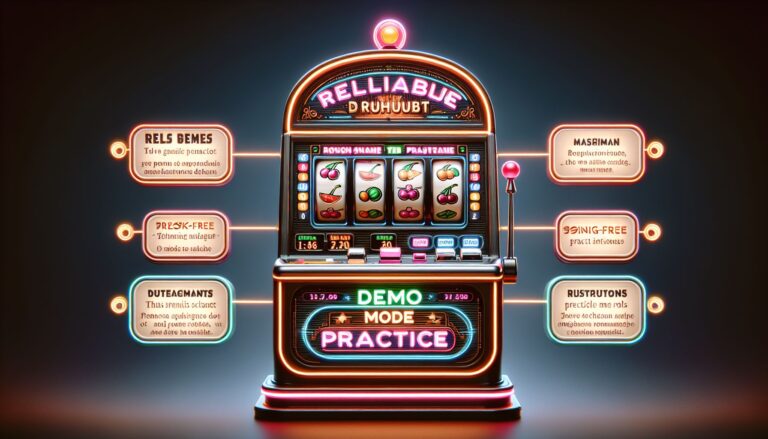Introduction
To say that the world of gambling is a controversial one would be an understatement. With its roots dating back to ancient civilizations, gambling has always been a source of entertainment and fascination for people of all ages and backgrounds. However, the question of whether gambling is based on luck or skill has been a topic of debate for centuries. Some argue that winning at gambling is purely a matter of luck, while others believe that it requires skill and strategic thinking. In this blog post, we will dive into the world of gambling, exploring the role of luck and skill, and providing tips on how to navigate this complex and often unpredictable industry.
Understanding Luck and Skill in Gambling
Before we delve into the details, it is essential to have a clear understanding of what luck and skill mean in the context of gambling. Luck can be defined as the occurrence of events or circumstances that are beyond our control. In gambling, luck is often associated with random outcomes, such as the roll of a dice or the spin of a roulette wheel. On the other hand, skill can be defined as the ability to perform a task or activity with expertise and precision. In gambling, skill refers to the knowledge and strategies used to make informed decisions and increase the chances of winning.
The Role of Luck in Gambling
Luck plays a significant role in gambling, especially in games that are based on chance. Slot machines, roulette, and bingo are some examples of games that are purely based on luck. In these games, the outcome is completely random, and there is no way to predict or influence the results. This means that no matter how skilled a player is, they have an equal chance of winning as any other player.
Another factor that adds to the element of luck in gambling is the use of random number generators (RNGs). These are computer programs that generate random outcomes, making it impossible for players to predict the results. RNGs are used in many online casinos, ensuring that all outcomes are entirely random and fair.
The Role of Skill in Gambling
While luck may play a significant role in certain casino games, there are other forms of gambling where skill is crucial. Card games, such as poker, and sports betting are examples of gambling activities that require skill. In these games, players can use their knowledge, strategies, and decision-making skills to increase their chances of winning.
In poker, for instance, players must analyze their opponents, read their body language, and make calculated moves to win the game. Similarly, in sports betting, bettors must have a good understanding of the game and use statistical and analytical skills to make informed bets. These examples show that while luck is an essential aspect of gambling, skill can also give players an edge over others.
Finding the Right Balance between Luck and Skill
In many casino games, luck and skill go hand in hand. For example, while luck plays a significant role in slot machines, there are some strategies that players can use to increase their chances of winning. These strategies involve knowing when to bet and how much to bet, as well as understanding the odds and payout percentages of the machine. In sports betting, bettors can use statistical models and analyze trends to make educated bets, but the final outcome is still dependent on luck.
When it comes to games of pure luck, such as roulette or bingo, it is vital to keep in mind that no amount of skill can guarantee a win. These games should be played for fun, and players should never rely on them as a means to make money. However, in games that require skill, it is essential to develop and hone those skills to increase the chances of winning.
Tips for Navigating the World of Gambling
-
Set a Budget: One of the most crucial aspects of responsible gambling is setting a budget. Before you start playing, decide how much you can afford to lose, and stick to it. Do not chase your losses, and never bet more than you can afford.
-
Know the Rules: It may sound obvious, but it is crucial to understand the rules of the game you are playing. This will help you make more informed decisions and avoid costly mistakes.
-
Practice Makes Perfect: If you are new to gambling, try playing free versions of the games first to get a feel for them. This will help you understand the game mechanics and develop strategies without risking your money.
-
Take Breaks: It is essential to take breaks while gambling to avoid making impulsive decisions. Set a timer for yourself, and when it goes off, take a break from the game.
-
Don’t Drink and Gamble: Alcohol can impair your judgment and lead to reckless betting. It is best to avoid drinking while gambling and save the celebratory drinks for after you have finished playing.
-
Play at Reputable Casinos: When gambling online, it is crucial to choose reputable and licensed casinos. These casinos are regulated and adhere to strict standards, ensuring fair gameplay and secure transactions.
Conclusion
In the end, the answer to whether gambling is based on luck or skill is not a simple one. While luck plays a vital role in the outcomes of many games, skill and strategy can also increase the chances of winning. The key to navigating the world of gambling is to understand the role of luck and skill, and use them in balance. With responsible gambling practices and a bit of luck on your side, you can enjoy the entertainment and thrill of gambling while minimizing the risks. Remember to always gamble responsibly and have fun!





